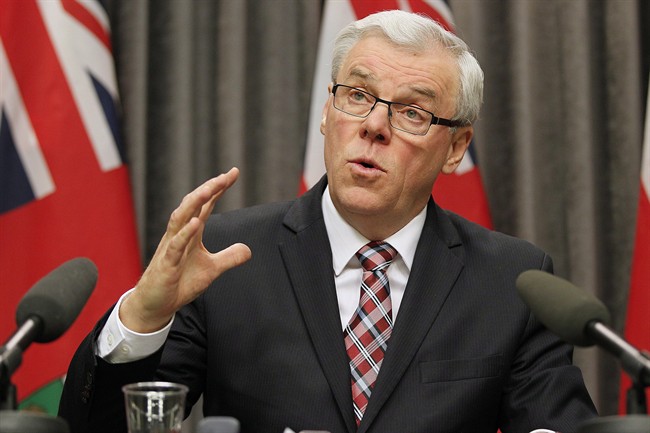WINNIPEG – Manitoba’s ombudsman has found that an assistant deputy minister was following the direction of a cabinet minister when he sent out an email inviting immigration agencies to a politically charged debate in the provincial legislature.

Mel Holley says Ben Rempel didn’t break any laws or guidelines when he sent an email in April 2012 that invited immigrants and newcomers to come watch the NDP government debate a resolution condemning the federal Conservative government for centralizing some immigration programs.
But Holley did say the invitation brought the neutrality of the civil service into question.
“While the distribution of the email was not intended to be a partisan act, the manner in which it was done and the political context in which it occurred clearly gave rise to the perception of partisanship,” the ombudsman said in a report released Wednesday.
Although then-immigration minister Christine Melnick publicly denied being behind the email, Holley’s investigation found Rempel sent the email on Melnick’s direction.
“It is important that the civil servants operate in an environment free of political influence when carrying out their administrative tasks,” Holley wrote. “In this case, the administrative action arose from a direction given by an elected official.
“This raises the question of whether elected officials have any responsibility to consider the neutrality required of civil servants when providing them with specific direction.”
- Alberta to overhaul municipal rules to include sweeping new powers, municipal political parties
- Canada, U.S., U.K. lay additional sanctions on Iran over attack on Israel
- No more ‘bonjour-hi’? Montreal mayor calls for French only greetings
- Trudeau says ‘good luck’ to Saskatchewan premier in carbon price spat
Melnick, who has since been dropped from cabinet, referred all calls Wednesday to cabinet communications officials. Matt Williamson, press secretary for Premier Greg Selinger, said no one was available to speak about the report.
The government issued a one-sentence email statement thanking Holley for “his thoughtful consideration and we accept the ombudsman’s conclusion that there was no misconduct.”
In his email invite, Rempel suggested that government-funded immigration agencies let employees take time off work to attend the debate.
“I would like service agencies especially to feel free to release staff and clients to attend tomorrow’s session in the gallery of the legislature, if they choose,” Rempel wrote.
Documents released later under access to information showed more senior bureaucrats were involved in an effort to boost attendance at the debate. One bureaucrat sent Rempel’s email to a number of groups outside of government and added the message: “Please circulate to all your contacts. They would like as many there as possible.”
Critics said the email showed that the NDP government used civil servants and newcomers to stage a political rally.
Holley said there was no indication that Rempel’s email was politically motivated. In fact, Holley said, Rempel wasn’t even in the office at the time the email was sent out under his name. The email was sent out within an hour of receiving direction from Melnick to inform stakeholders about the legislature debate.
“It was essentially hastily done and … poorly handled,” Holley said in an interview. “It raises the question of who has responsibility for civil service impartiality. Our view is that this should be everyone’s job, including elected officials.”
Holley recommended the clerk of cabinet and the civil service commissioner draw up new guidelines to help bureaucrats avoid the perception of partisanship.
Progressive Conservative Leader Brian Pallister said civil servants don’t need a lesson in neutrality. He suggested politicians are the ones who need to learn they can’t ask bureaucrats to do their partisan bidding.
“Don’t blame civil servants for things like this,” said the Opposition leader. “Elected officials or government political staff — and there are an abundant number of them who are used by the ministers to convey messages — should stop treating civil servants as political puppets.”



Comments